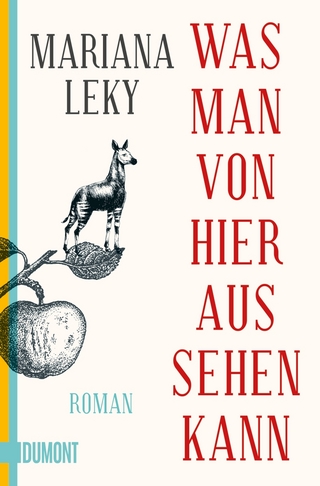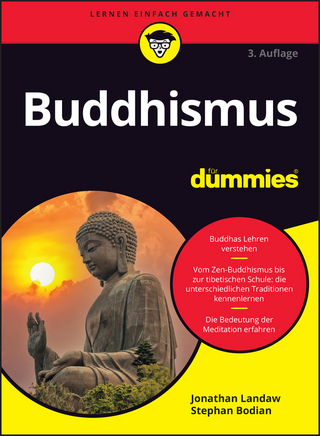
Boston Confucianism
State University of New York Press (Verlag)
978-0-7914-4718-5 (ISBN)
Is it possible to be a Confucian without being East Asian, as so many philosophers have been Platonists without being Greek? Strangely enough, many scholars would answer in the negative, citing the inextricable connection between Confucianism and East Asian culture. Boston Confucianism argues to the contrary, maintaining that Confucianism can be important to the contemporary global conversation of philosophy and should not be confined to an East Asian context. It promotes a multicultural philosophy of culture and makes a contribution to Confucian-Christian dialogue, showing that the relations among the world's great civilizations today is not a "clash," as Samuel Huntington has argued, but an entanglement whose roots are worth sorting and whose contemporary mutual developments are worth promoting.
Robert Cummings Neville is Professor of Philosophy, Religion, and Theology at Boston University and Dean of the School of Theology. He is past president of the International Society for Chinese Philosophy, the American Academy of Religion, and the Metaphysical Society of America. Neville is the author and editor of many books, including most recently The Recovery of Philosophy in America: Essays in Honor of John Edwin Smith, also published by SUNY Press.
Foreword by Tu Weiming
Preface
1. The Short Happy Life of Boston Confucianism
1.1. Portable Confucianism: Roots and Branches
1.2. Ritual Propriety
1.3. Pragmatism
1.4. Confucian Critique for Boston
1.5. Bostonian Modifications of Confucianism
2. Confucianism on Culture
2.1. Philosophy of Culture
2.2. An Elementary Theory of Culture and Nature in Xunzi
2.3. Chinese Orientations to Culture: Confucian, Daoist, Legalist, Moist, and Buddhist
2.4. Confucius, Mencius, and Xunzi Compared
2.5. Confucian Contributions to a Contemporary Philosophy of Culture
3. Confucianism in the Contemporary Situation
3.1. Historical Background
3.2. Interpretive, Bridging, and Normative Philosophers
3.3. Roger T. Ames and David L. Hall
3.4. Cheng Chungying
3.5. Wu Kuangming
4. Confucian Spirituality
4.1. Philosophy and Religion
4.2. Spirituality and Ultimate Reality: Defining Hypotheses
4.3. Self, Truth, and Transformation
4.4. Confucian Spirituality in a Scientific Society
4.5. Confucian Spirituality in a Global Moral Democracy and Ecology
5. Tu Weiming's Confucianism
5.1. Conversation and Existential Choice: Way of the Sage
5.2. The Question of Conversion
5.3. The Question of Ritual
5.4. The Question of Love (Ren)
5.5. The Question of Evil
6. Motif Analysis East and West
6.1. Motif Analysis
6.2. Comparison
6.3. Ancient Cultural Motifs and Their Development
6.4. Relations of Motifs to Deeper Imaginative Artifacts
6.5. Motifs and Their Sequelae
7. Motifs of Being
7.1. The Trouble with Being
7.2. Philosophy as Engagement
7.3. Western Motifs for Being
7.4. The Dialectic of Being
7.5. South and East Asian Motifs for Being
8. Motifs of Transcendence
8.1. Transcendence as a Category
8.2. Transcendence in Ancient Confucianism
8.3. Transcendence in Neo-Confucianism
8.4. God and the Imago Dei
8.5. John Wesley and the Image of God
9. Resources for a Conception of Selfhood
9.1. Problems with the Self
9.2. The Self as Contradictory and Self-Deceived in Western Thought
9.3. The Self in Confucian Thought
9.4. Self-Deception in Confucian Thought
9.5. The Self as Orientation and Poise
10. Confucianism, Christianity, and Multiple Religious Identity
10.1. Engaging Problematic Cases
10.2. Filial Piety as Holy Duty
10.3. Ritual Propriety
10.4. Jesus as Model
10.5. Multiple Religious Identity
Notes
Bibliography
Index
| Erscheint lt. Verlag | 22.9.2000 |
|---|---|
| Reihe/Serie | SUNY series in Chinese Philosophy and Culture |
| Vorwort | Tu Wei-Ming |
| Zusatzinfo | Total Illustrations: 0 |
| Verlagsort | Albany, NY |
| Sprache | englisch |
| Maße | 152 x 229 mm |
| Gewicht | 408 g |
| Themenwelt | Geisteswissenschaften ► Religion / Theologie ► Buddhismus |
| ISBN-10 | 0-7914-4718-9 / 0791447189 |
| ISBN-13 | 978-0-7914-4718-5 / 9780791447185 |
| Zustand | Neuware |
| Haben Sie eine Frage zum Produkt? |
aus dem Bereich


